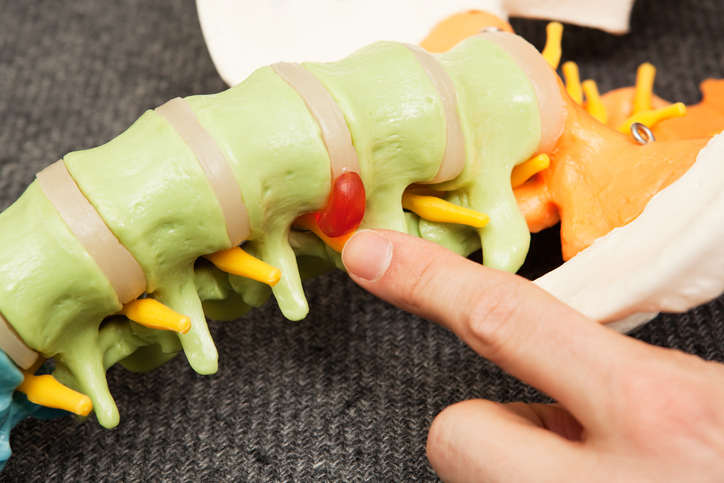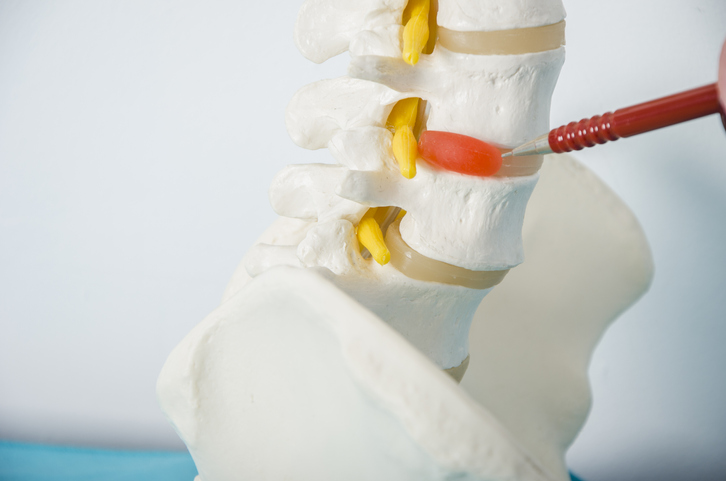Pain
What Is a Herniated Disc?

A herniated disc (or disk) is also referred to as a slipped or ruptured disc. Spinal discs are rubbery cushions that sit between individual vertebrae. As a disc naturally degenerates with age, the soft jelly-like center of the disc (nucleus) can herniate or tear through the tougher, rubbery exterior (annulus). This can occur at any point of the spine, but the most common location is between the fourth and fifth lumbar vertebrae in the lower back.
Symptoms
The symptoms of a herniated disc vary, depending on the exact location of the herniation. In some cases, a herniated disc may not cause any symptoms at all. If symptoms do occur, they include, but are not limited to, the following:
- Arm or leg pain
- Pain in the lower back
- Pain that spreads from the back to the buttocks, thighs or calves
- Pain that is sharp or burning
- Pain that is worse at night or with certain movements
- Pain that worsens after sitting or standing
- Pain when walking a short distance
- Numbness, tingling, burning or aching sensations
- Muscle weakness that causes stumbling or affects the ability to lift or hold items
Causes
In most cases, a herniated disc is caused by gradual, age-related wear and tear or disc degeneration. As the discs become less flexible, they are more likely to rupture or tear with a minor twist or strain. Other causes include trauma, a heavy blow to the back, or twisting or turning while lifting a heavy item. Most individuals cannot identify what caused their herniated disc.
Risk factors
General risk factors for a herniated disc include, but are not limited to, the following:
- Weight — Excess weight puts stress on the lower back.
- Occupation — Physically demanding jobs that require repetitive lifting, pulling, pushing, bending or twisting can put pressure on the spine.
- Genetics — Disc herniation can be an inherited predisposition.
- Smoking — Smoking reduces the supply of oxygen to the discs, causing discs to break down more quickly.


















